Although many people in Europe are feeling the pinch just now, and the ordinary family seem to be living in quite austere times, a small budget need not dissuade you from taking your next holiday in Spain. The budget traveller can still enjoy the best of what Spain has to offer, and not have to spend a lot of money. We show you 5 ways that you can save money and take a holiday on Spain's Costa Blanca, and maybe even come back with money left over!
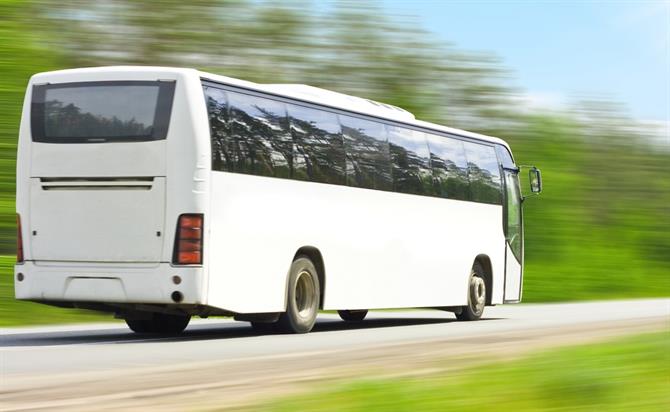
1. Getting to Spain.
There are many ways that you can get to Spain on a budget, the most common one being flying, which takes between 2 and 3 hours, depending on the place of departure in the UK and the final destination here in Spain.
However, the method of transport you choose depends on how much money there is to allow for travel, and how much time you have on your hands. In recent years there has been a huge increase in the availability of cheap flights to Spain, from airlines such as Monarch, Ryanair, Easyjet and so on.
Booking last minute can uncover some great deals, however buying flights to Spain well in advance can get you even greater savings, so study the airline's website carefully and play around with different times to see what bargains can be had.
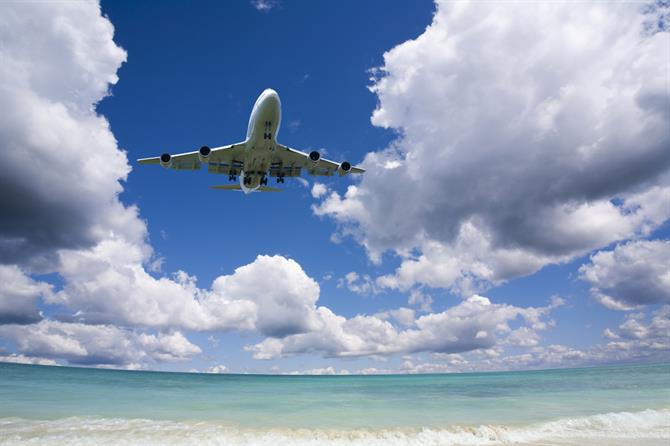
One other tip to travel even more cheaply on the plane is to not take luggage with you, but pack as much as you can in your hand luggage, don't pay to reserve a seat, and get your own travel insurance, which is much cheaper than buying from the airline.
Take your own ready-prepared sandwich or snack on the plane, don't buy anything in the airport before you go, and don't be tempted to buy any of the various items they try and sell you in-flight!
There are other ways to get to Spain cheaply and they could include: Boarding a ferry as a foot passenger (no cabin) from either Plymouth or Portsmouth, to arrive in either Bilbao or Santander, in the Basque country, and then getting a bus or a train to your destination.
However if money is REALLY tight, try hitching a lift once you arrive in Spain! (Not recommended for lone female travellers)
2. Staying cheaply in Spain on Holiday.
There are various ways to save money on your holiday accommodation in Spain, and one of them, and in fact the most obvious, is to try and find someone you know who owns a villa or an apartment in Spain where you can stay cheaply or free!
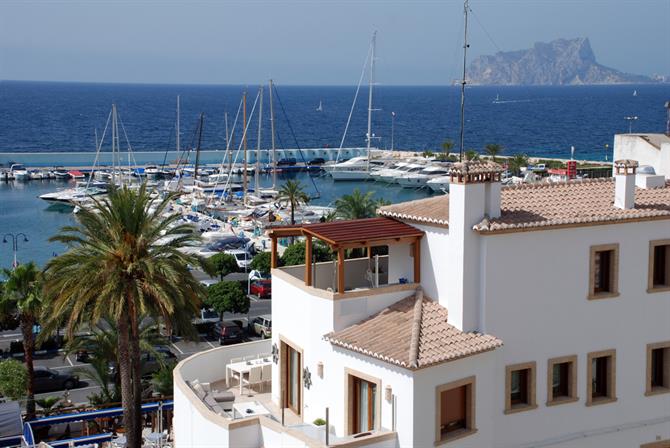
If you are not lucky enough to know someone who owns some holiday accommodation they can let you stay in then there are other options such as camping, with the weather in Spain being ideal for such things, and it can be great fun too. Some campsites have all the amenities that people come to expect such as a bar, showers, a shop and so on, although a pitch fee is often charged, it's a lot cheaper than staying in a hotel!
For the younger traveller, there also exists the Youth hostel scheme in Spain, plus for students currently at a British university, many academic institutions partner with various others around Europe and offer schemes such as accommodation swaps, house sitting, or free rooms. Commonly its a reciprocal agreement, so expect whoever you are staying with, to come to Britain at some point for their holiday on a budget!
3. Eating on the cheap in Spain.
There are many ways to eat cheaply in Spain and largely depends on where you have chosen to take your budget vacation and how adventurous with food you are! The easiest way save money on your food and eating whilst in Spain is to avoid beach front and tourist restaurants and go and eat with the Spanish.
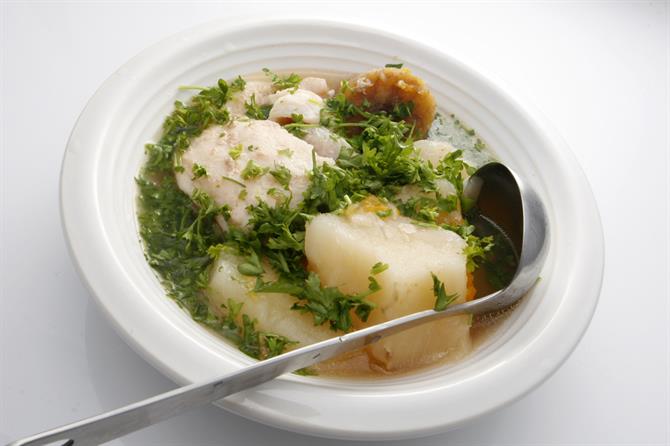
Each bar and cafe in Spain offers a "Menu del dia" (Daily set menu) and if you shop around, or even ask one of the locals if you're Spanish is ok, you can find some place decent and cheap quite easily, but don't expect to be able to order British Fish and chips!
The typical set menu will consist of 3 courses, often with very limited choice, and the price of such varies from around 7 euros to 12 euros.
Another way is to get the "raw ingredients" for your food in a Spanish supermarket such as Mercadona, masymas, dia etc, and prepare the food yourself.
For a special treat, head for a "Wok asador" which despite sounding like a Chinese restaurant, (although Chinese food is often served,) the wok asadors have an all-you-can-eat buffet of international food, and also a"Parilla" which is a grille-like a BBQ inside the restaurant whereby you select raw meat or fish (!) from the chilled counter at the buffet area and they cook it it to order in front of you!
Expect to pay about 10 euros a head, avoid buying many drinks as they are expensive, and eat until you are fit to burst. That will keep you going for quite some time. The price increases at weekend and on bank holidays.
A complete guide to how much you would expect to pay for food on holiday in Spain can be found here.
4. Getting around cheaply on Holiday
Once in Spain there are many ways that you can get around cheaply, public transport being of course the main way, the other being cycling or walking.
Spain's largest cities also have Metro systems, similar to the underground network in London, and a travel card (below) can be bought quite cheaply, enabling you to explore whatever city you find yourself in.
Spanish cities who have metro systems include Valencia, Barcelona, Seville, Madrid, and Bilbao, although many other places have their own tram systems, or great value-for-money local trains, so why not utilise this method of transport, take your camera, some drink and a packed lunch, and explore to your hearts content?
5. Sightseeing on a budget in Spain
Spain has a rich, diverse and varied history, and the Iberians, the Romans, even the Moorish Muslims, all left their mark on Spain, and couple this with modern marvels to be found in various places, the prospect of seeing some amazing things here on the cheap, or even free, without dipping in your pocket, is a real opportunity not to be missed.
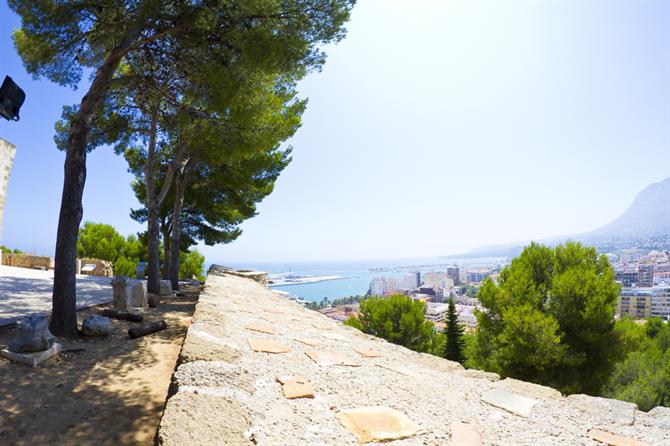
Spain has an array of ancient castles and fortresses, many dating back to Roman times and even earlier.
Most attractions such as temples, castles and so on are free to look around, although some charge a nominal entrance fee, often spent on essential restorations. The above shows a view of Denia from it's ancient castle.
Many museums that charge an entrance fee often have at least one day per week where it is free to enter, so once you arrive at your chosen holiday destination, you should head for the town hall (Ayuntamiento) or the tourist office, for some free literature and a local map.
If castles and Roman ruins are not your thing then of course remember you are in Spain and the beaches, the all-year-round sun and the crystal clear waters of the Mediterranean are of course completely free!
With careful planning and strict budgeting, you too can enjoy a great holiday in Spain, but still manage to watch the pennies (or centimos) too!
